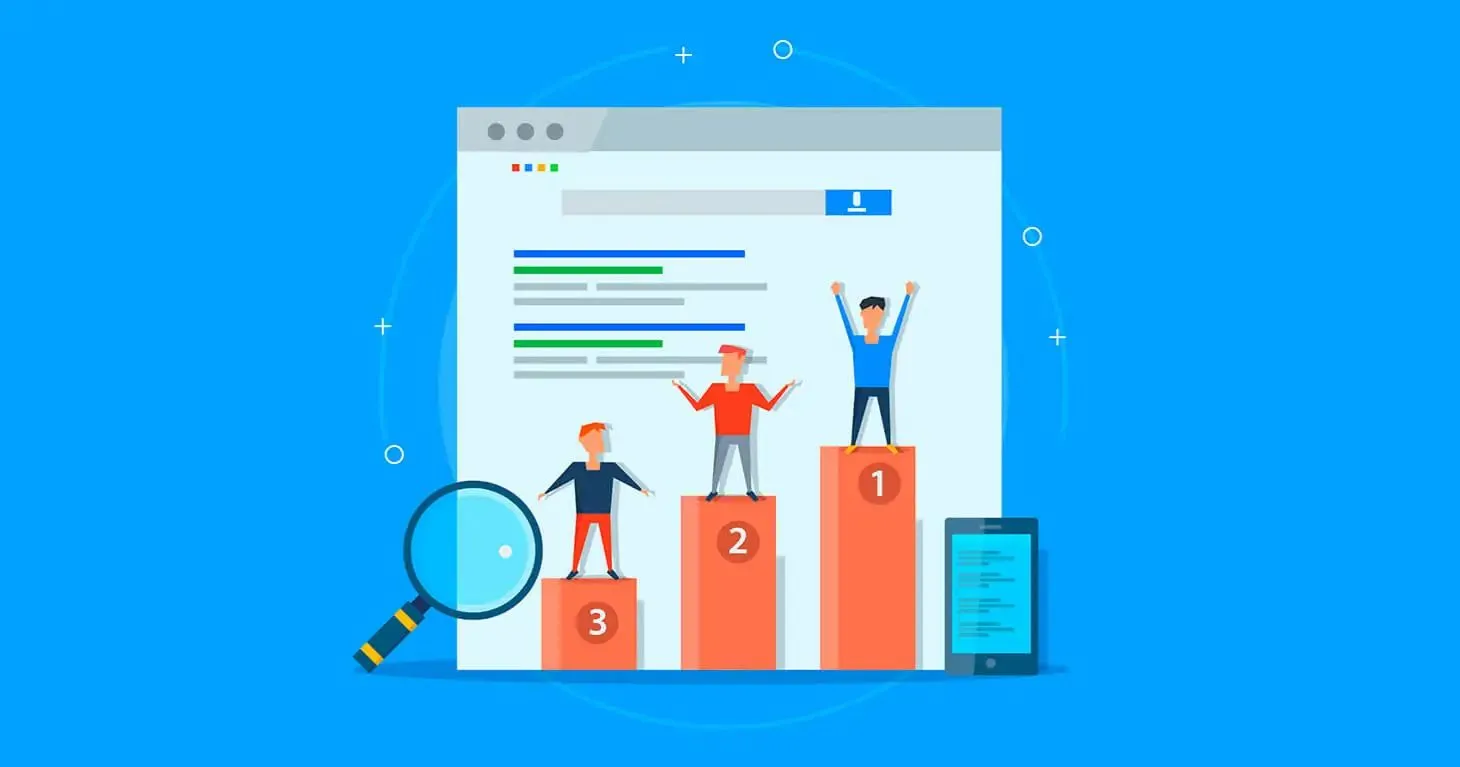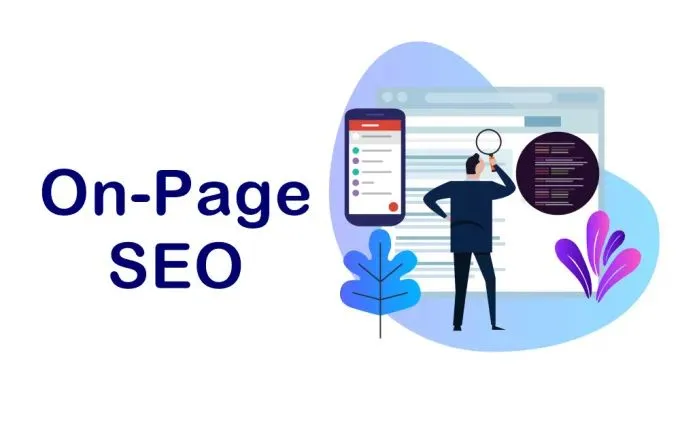In the SEO world, many factors determine how well a web page ranks on search engines. Among these, content length plays a significant role in On Page SEO rankings. But does the length of your content directly influence how well your page performs? Or does the quality of content take precedence over its word count? In this blog, we’ll explore the relationship between content length and On Page SEO, helping you understand how to optimize your content for better rankings. While longer content may give you more opportunities to rank for a wider range of keywords, it’s the relevance and value to the user that truly drives performance. A balance between keyword optimization and user-focused content is essential for ranking higher. Also, search engines like Google tend to favor content that thoroughly answers search queries, regardless of length. Therefore, focusing on satisfying user intent should always be a priority.

What is On Page SEO?
Before delving into the role of content length, let’s first define On Page SEO. On Page, SEO refers to the various elements on your webpage that you can optimize to improve your search engine rankings. These elements are crucial because they directly communicate your page’s relevance to search engines. Some key On Page SEO factors include:
- Title Tags: The title that appears in search engine results.
- Meta Descriptions: A concise summary of your page under the title.
- Headings and Subheadings: These help search engines and users navigate your content.
- Images and Alt Text: Optimizing images for better visibility in search engines.
- Internal and External Links: Links that connect your page to other content on your site and across the web.
- Content: The heart of your webpage and the focus of this discussion.

The Connection Between Content-Length and SEO Rankings
SEO experts generally agree that longer content tends to perform better in search rankings. However, the relationship is more complex than simply increasing word count. Content length is most beneficial when it enables you to provide more in-depth, relevant, and valuable information.
SEO Relevance of Content-Length:
Search engines, like Google, aim to deliver the most relevant results to users. Longer content allows you to:
- Cover various aspects of a topic.
- Naturally, use more keywords.
- Provide detailed answers to users’ queries, which satisfies search intent.
However, length alone won’t guarantee high rankings. Quality remains crucial. Search engines favor content that is comprehensive, well-researched, and engaging.
How Does Content Length Influence User Engagement?
One key metric for On Page SEO rankings is user engagement. Longer content typically keeps users on the page longer, leading to better engagement metrics like time on the page and reduced bounce rate. These signals tell Google your content is valuable and relevant, which can positively influence your rankings. However, shorter content can also rank well for niche topics or specific queries. The length of your content should align with the search intent behind the query. For example, a 500-800 word post may suffice for particular queries, while more complex topics may require 2,500+ words.
Competitor Analysis: Insights into Content-Length
Analyzing the top-ranking pages for your keywords helps you understand how content length affects On Page SEO. Tools like Ahrefs or SEMrush can provide data on the average word count for the top 10 results.
Competitor Strategy:
When you analyze your competitors, consider the following:
- Average Word Count: Top-ranking pages for competitive keywords range from 1,500 to 3,000 words.
- Content Depth: Longer content typically offers more detailed insights, statistics, case studies, or examples, helping it stand out in search results.
- Keyword Integration: High-ranking pages often naturally incorporate related keywords without stuffing them.
Best Practices for Optimizing Content Length for SEO
To optimize your content length for SEO, follow these best practices:
- Aim for 1,500–2,500 Words: This range allows you to thoroughly cover a topic without overwhelming the reader.
- Integrate High-Volume Keywords: Use a tool like an On Page SEO checker to identify keywords that can be naturally incorporated into your content.
- Maintain Content Depth: Ensure your content answers every possible question related to the topic. The more comprehensive and detailed your content, the more likely it is to rank higher.
- Focus on Readability: Longer content should be easy to digest. Use headings, subheadings, bullet points, and images to break up large blocks of text.
- Mobile Optimization: With mobile-first indexing, ensure your content is mobile-friendly. Long content that is difficult to read on mobile can hurt your SEO performance.
Using On Page SEO Tools to Track Performance
Once you’ve optimized your content length and structure, you should measure its impact. Tools like Google Analytics, SEMrush, and Ahrefs can help you track your content’s performance and make data-driven decisions.
Key metrics to track:
- Organic Traffic: Watch for increases in organic traffic after publishing your optimized content.
- Bounce Rate: A lower bounce rate suggests your content keeps users engaged.
- Backlinks: Long-form, well-researched content often attracts backlinks, which can further improve SEO rankings.
An On Page SEO tool can help you identify areas for improvement and ensure that your content meets SEO best practices.
The Role of Off Page SEO
While On Page SEO is essential, it’s also vital to consider Off Page SEO factors, which involve actions outside your website that impact its search engine rankings. These include backlink building, social media engagement, and brand mentions. Both On Page SEO and Off Page SEO work together to improve your overall rankings. Understanding the difference between On Page SEO and Off Page SEO is crucial for creating a holistic SEO strategy. On Page SEO focuses on optimizing your website’s content, structure, and technical elements, while Off Page SEO involves strategies like link-building and social signals.

Common Mistakes to Avoid in Content Creation
When optimizing content length for SEO, avoid these common mistakes:
- Keyword Stuffing: Overusing keywords can lead to penalties from Google. Use keywords naturally and avoid over-optimization.
- Focusing solely on Length: Don’t increase word count just for the sake of it. Ensure your content is relevant, high-quality, and answers the user’s question.
- Ignoring User Intent: Always prioritize the user’s needs. Content should provide real value, not just be written to rank.
Conclusion
Content length is an essential factor in On Page SEO rankings, but it’s not the only consideration. Length should be balanced with quality, engagement, and relevance. Long-form content ranks well because it can cover in-depth topics and meet users’ search intent. However, shorter content can be equally effective for specific queries. To succeed in SEO, focus on creating valuable, comprehensive content that aligns with user intent. Use the insights from On Page SEO checkers and SEO tools to refine your strategy and track your performance. By optimizing your content length and following best practices, you can improve your rankings and drive more organic traffic.
FAQs
Does content length affect SEO rankings?
Yes, content length can impact SEO rankings as longer, well-structured content often provides more valuable information. However, search engines prioritize quality, relevance, and user experience over simply meeting a word count. Focus on delivering useful, engaging content that satisfies search intent.
What’s the difference between On Page SEO and Off Page SEO?
On Page, SEO focuses on optimizing elements within your website, like content, meta tags, and internal linking. Off Page SEO involves actions outside your site, such as backlinks, social media presence, and brand mentions. Both aim to improve search engine rankings but through different strategies.
Can I use a content-length tool for SEO?
Yes, content-length tools can help optimize SEO by ensuring your content is of an appropriate length for search engine algorithms. They can guide you in creating detailed and comprehensive content without excessive fluff. However, focus on quality, relevance, and user engagement over merely meeting a length target.
How often should I update my content for SEO?
You should update your content regularly to keep it fresh and relevant, ideally every 6-12 months. Updating content helps improve its accuracy and user engagement, signaling to search engines that your site is active. Focus on adding value with updates, rather than just making small changes.









